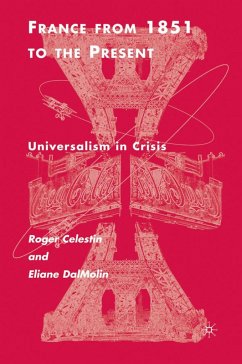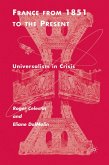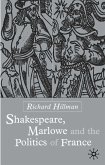Bringing together history, literature, and popular culture, this book provides a cultural history of France from a period of dominance in the mid-19th century to one of decline or crisis in the first few years of the third millennium. Contains both chronological narrative and a selection of primary documents in translation.
'Celestin and DalMolin have written an interesting and thoughtful general cultural history of France over a 150-year period...It will make a good resource for students, given its accessibility and the extensive material presented.' - Timothy Baycroft, French History
'...the work would usefully contribute to any university library, allowing non-Francophone students access to some very useful material and giving them a useful stimulus in forming ideas and analyses.' - Sharif Gemie, Journal of Contemporary European Studies
'...the work would usefully contribute to any university library, allowing non-Francophone students access to some very useful material and giving them a useful stimulus in forming ideas and analyses.' - Sharif Gemie, Journal of Contemporary European Studies








